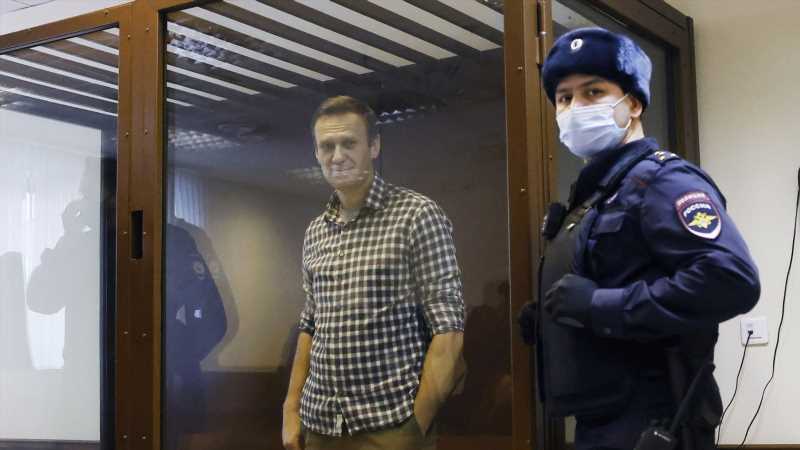Kremlin critic Alexei Navalny has moved from the jail where he was being held – but officials have not yet revealed where he has been sent to.
His lawyers revealed the news in a post on his official Twitter account.
Mr Navalny, an anti-corruption investigator, was arrested in Moscow in January upon returning from Germany, where he spent five months recovering from a nerve-agent poisoning that he blames on the Kremlin.
Russian authorities have rejected the accusation.
Meanwhile, dozens of countries including the US and UK have called on Russia to release Mr Navalny, saying his imprisonment was unlawful.
They have also demanded an investigation into his poisoning last year.
In a statement read out by Poland to the UN Human Rights Council in Geneva, they said that actions by Russian authorities against the opposition leader were “unacceptable and politically motivated”.
The 45 countries were mainly European but also included Australia, Canada and Japan.
“We call on the Russian Federation for the immediate and unconditional release of Mr Navalny and of all those unlawfully or arbitrarily detained, including for exercising their rights to freedom of peaceful assembly and association, freedom of opinion and expression, and freedom of religion or belief,” the joint statement said.
“We are also concerned by the large number of arbitrary arrests of protesters who were expressing their support for Mr Navalny in many Russian cities.”
Russia has previously described such criticism as interference in its internal affairs.
Britain’s ambassador, Julian Braithwaite, said it was “disgraceful” that Mr Navalny had been jailed while the poisoning was not investigated.
In February, a court sentenced the 44-year-old to two years and eight months in prison for violating the terms of his probation while recuperating in Germany.
The sentence stems from a 2014 embezzlement conviction that Mr Navalny has rejected as fabricated.
Source: Read Full Article






